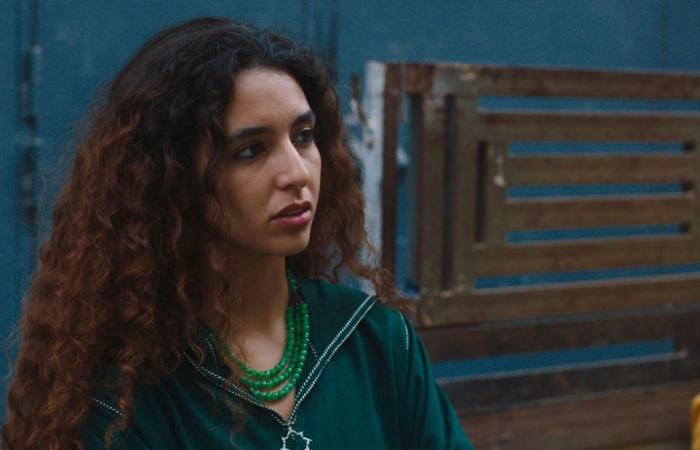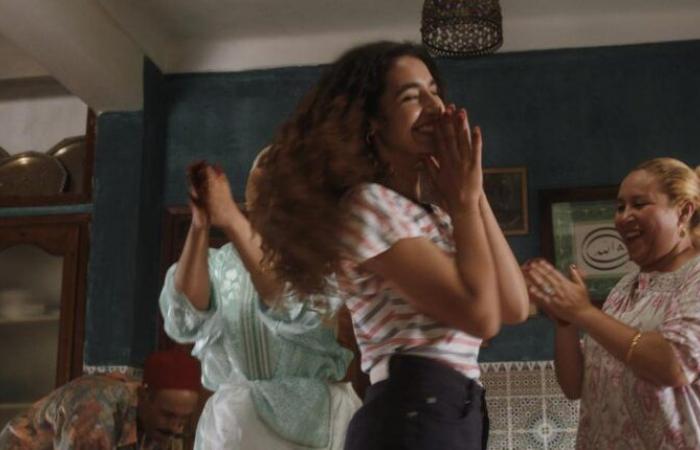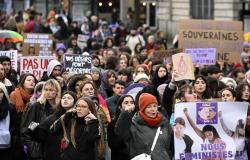L’aitaa Moroccan heritage jewel, has resonated for centuries like the voice of the plains, sometimes rising in a cry of resistance – “Here is the word, we are with God» –, sometimes to celebrate love – «Ah ya lasmar» – or to magnify beauty – “awinatek bhira, miha safia“. This popular and poetic art even reaches spiritual dimensions, as evidenced by the invocation: “Moulay Abdellah the lwali, may God protect us“. Preserving this living heritage is essential to prevent it from falling into oblivion.
A diversity of initiatives testifies to this desire for transmission, notably the study of Hassan Najmi, Ghinaa al aïta (Al-Aïta oral poetry and traditional music in Morocco, Toubkal editions, 2007), or the serial Oujaâ Powderdirected by Chafiq Shimi and Noureddine Kacimi, a vibrant tribute to this ancestral art. More recently, the anthology Chikhates and Chioukhs de l’Aïtaproduced in 2017 by the Moroccan association Atlas Azawan under the direction of Brahim El Mazned, completed the puzzle. In this same dynamic is part Chikhathe short film by Ayoub Layoussifi and Zahoua Raji, which brings a new stone to the building of this mosaic.
“Chikha”: Between two worlds
Chikhadirected by Ayoub Layoussifi and Zahoua Raji, was recently honored with the Baobab Prize for Best Short Film at the Film Africa Festival in London. This award recognizes a work that combines commitment and cultural celebration with finesse.
In 25 minutes, the film delves into the journey of Fatine, a 17-year-old girl torn between her love for Youssef, who rejects his family heritage, and her deep attachment to Aïta, a traditional song embodied by the Shikhates. This identity dilemma, exacerbated by an unexpected ultimatum, pushes Fatine to forge her way with determination, thus leaving a powerful mark on the entire film.
A scene from the film.
The directors, driven by cinematographic influences anchored in social realism, adopt a style imbued with authenticity. Ayoub Layoussifi, inspired by the Iranian cinema of Abbas Kiarostami, draws on this aesthetic to illustrate cultural identity. Also marked by South Korean filmmakers Park Chan-wook and Bong Joon-ho, he declares: “I like moving cinema, an author’s style that reflects my identity, my culture and my background“. Layoussifi, a trained actor, also enriched his directing by observing directors like Werner Herzog and Mohamed Mouftakir.
Zahoua Raji, for his part, finds an affinity in the social cinema of Ken Loach, where authenticity flirts with documentary. This realistic imprint is found in Chikhareinforced by his love of Iranian and Korean cinema, appreciated for the rhythm and depth of the dialogues.
A scene from the film.
The character of Fatine is played by Rita L’Oujdia, discovered by the directors on social networks a year before the casting. Rita, described by Layoussifi as “strong, bold, intelligent», immediately embodied this young woman caught between two worlds. The selection process involved a real collective effort, bringing together casting directors and those close to the directors to find this rare gem.
The world of the Shikhates is treated with a sensitivity that shines through in each scene. The directors, having grown up with these emblematic figures at weddings and festivities, were fascinated by their paradoxical marginalization in the 90s.We wanted to show these strong and free women, often underestimated. Everyone wants their company, but their reputation remains tainted», confides Layoussifi. For Raji, the chikhates symbolize the resilience of a people and the permanence of their art in the collective imagination.
At the heart of the film, Fatine, from a lineage of artists, must choose her own path. Layoussifi underlines the importance of this feminine perspective: “It is above all the point of view of a woman, a young girl who refuses to have the rules dictated to her… Becoming a chikha is a source of pride, not a shame.». Chikha thus becomes a portrait of emancipation, celebrating an art that is still stigmatized.
To create authentic dialogues, authors Yamina Zarou, Zahoua Raji and Layoussifi collaborated closely, developing the initial text in French before entrusting the translation to Hatim Seddiki. Layoussifi explains that the preferred approach gave the actors freedom of adaptation, allowing each character to appropriate the dialogues in a natural way. This process reinforced the authenticity of the speech, giving the exchanges depth and a certain resonance.
With ChikhaAyoub Layoussifi and Zahoua Raji deliver an intense work that combines social commitment and intimate exploration, questioning life choices at the intersection between tradition and modernity. Through the portrait of a heroine in search of freedom, the short film celebrates Aïta while questioning the norms that weigh on the expression of multiple identities in Morocco.
Consecrations!
In October 2024, Chikha began its international journey by being selected in the official competition at the prestigious Film Africa in London, where it made a remarkable debut as a World Premiere and was crowned with the Baobab Award for Best Short Film. This distinction marked the beginning of a series of participations in several festivals around the world. In the United States, the short film was first screened at the Arab Film Festival in San Francisco, where it was nominated for the Best Narrative Film award. In Latin America, Chikha was also presented in competition at the Belo Horizonte International Short Film Festival, Brazil, where it had a local premiere.
In November, Chikha made its debut in the United States in competition at the Miami Short Film Festival, where it was nominated for the Best Foreign Film award. In France, the film is presented out of competition at the Brest European Short Film Festival, as part of the France TV program. Still in November, Chikha is in official selection at Ale Kino! International Young Audience Film Festival in Pöznań, Poland.
Finally, in December 2024, the film is expected in two leading festivals in the Arab world: it will be screened in competition at the Red Sea International Film Festival in Saudi Arabia, then at the Carthage Cinematographic Days (JCC) in Tunisia, an event emblematic of Arab and African cinema.







